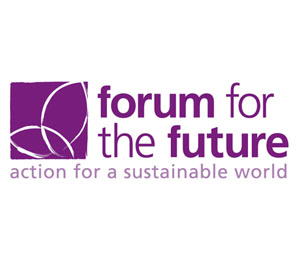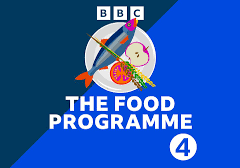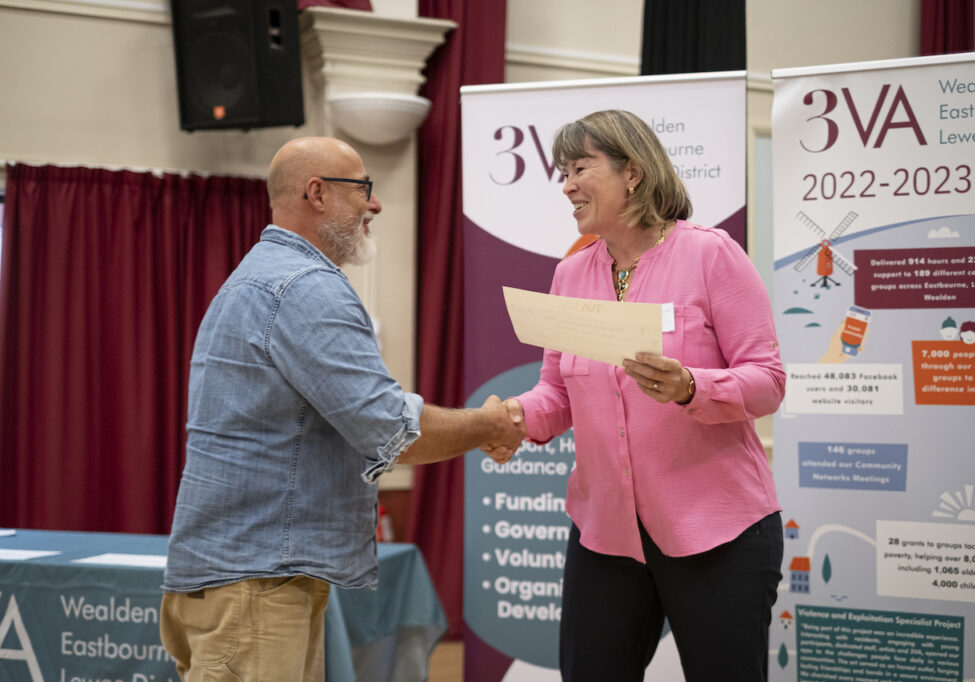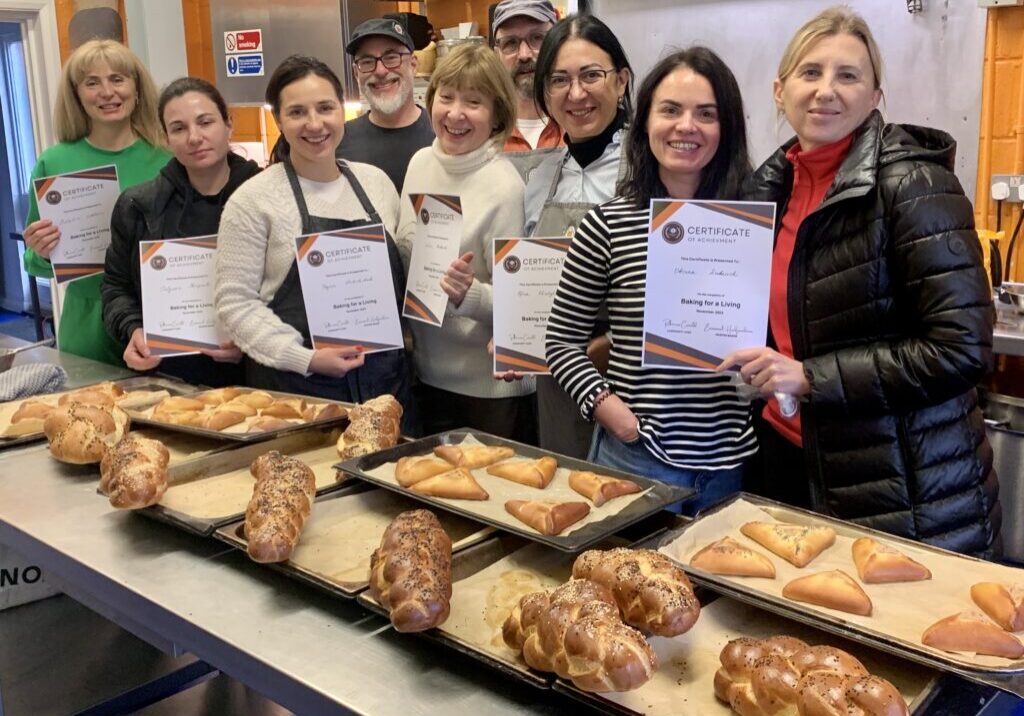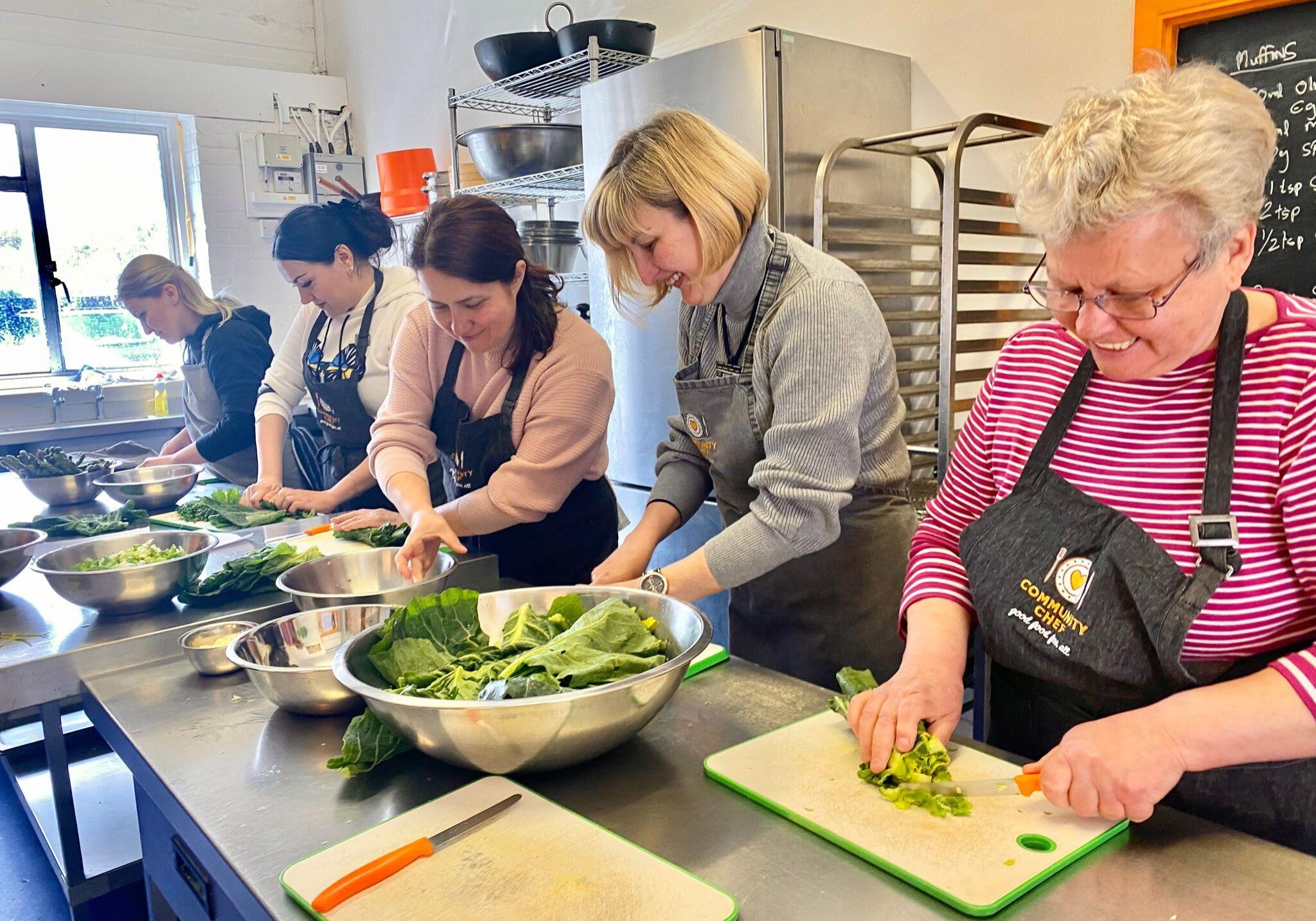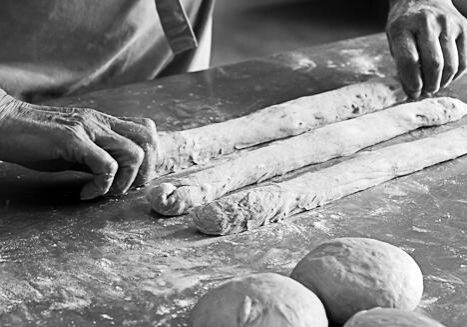Cooking Up Change – In August, I received an interesting proposal from Charlene Collison from Forum for the Future, an independent non-profit organisation which works globally with business, government and other organisations to solve complex sustainability challenges. www.forumforthefuture.org
Forum had for some time been working on a toolkit based on the lessons learnt from collaborative projects. These lessons were metaphorically transposed into recipe cards which covered key ingredients needed to ensure effective collaboration. Forum were hosting a cross sectoral symposium and wanted someone to facilitate a participatory exercise which would bring these ingredients to life. Charlene asked me to get 70 attendees, from a broad spectrum of organisations and businesses, to work together on a practical cookery task in order to give people an experience of what it takes to collaborate well. As someone who is acutely aware of the need for sustainability solutions to ensure the perpetuity of our planet, I jumped at the chance to work with this ground breaking organisation.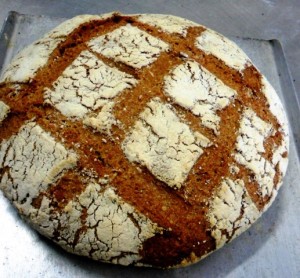
I decided to open the exercise with a presentation on bread making as an example of how effective collaboration results in the desired outcome. Bread making ingredients are simple yet utterly distinct. The process and its success are contingent on the variables of, time, heat and proportions being managed in such a way so as to optimize the synergy between the ingredients. Bread is a simple amalgam of flour, water, salt and yeast. Flour is the substance, water is the binding agent, salt enhances the flavour and develops the gluten. However, yeast is the real magic ingredient. It is the catalyst for change. A micro-organism, which when given the right environment, causes the inert dough to ferment, rise and come to life. No yeast, no bread! No catalyst, no change!
I followed this with a collaborative canapés exercise where seven tables were presented with a set of pre made and easy to prepare raw ingredients and asked to work together to create a tray of canapés which would be served during the break. We had a Spanish set, an Asian set and an Indian set of ingredients, some familiar and some quite unusual. Each table had very basic equipment and presentation platters. The only direction I gave them was that they needed to collaborate and produce a tray of beautiful, delicious and healthy canapés. 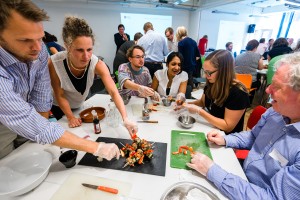
It was very enlightening to observe the process. Each table took to the task in different ways, some jumped right in with no planning or consensus. Some deliberated and analysed before apportioning tasks and getting stuck in. In most groups, some degree of leadership or creative direction naturally emerged. Each table produced canapés that were individual and delectable. The activity created a fantastic buzz and set the tone for the rest of the symposium.
With all of the environmental, social and economic challenges we are facing, Forum for the Future who are actively creating sustainability solutions are like yeast, a catalyst for change – it was an honour to work with them!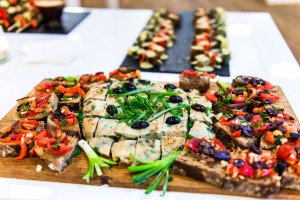
If you would like to find out more about this work download the CookBook

